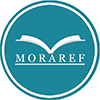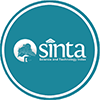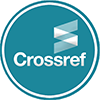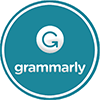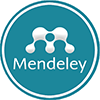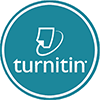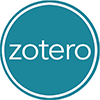Penerapan Model Problem Based Learning untuk Meningkatkan Hasil Belajar IPA Kelas V MIM Plus Suwaru
Abstract
The success of the learning process is the main target in implementing learning. However, student learning outcomes in class V MI Muhammadiyah Plus Suwaru Bandung are not optimal. Thus, the Problem Based Learning learning model is applied as an alternative solution. This research is classroom action research using the Kemmis & Mc Taggart model. Classroom Action Research procedures consist of planning, implementation, observation, reflection. Data collection techniques consist of interviews, observations, tests, field notes and documentation. Data analysis techniques use percentage techniques by comparing the scores obtained by students with the ideal maximum score. Learning by applying the Problem Based Learning learning model is declared successful if there is an increase in student learning outcomes of at least 75% of the total number of students achieving a complete learning score, namely above 70. In cycle I the learning outcomes achieved by students have not reached completeness because the percentage of completeness is only 73 % (not yet completed), while in cycle II there was a slight increase, this increase was with a percentage of learning completeness of 77% in the category (not yet completed). while in cycle III there was a significant increase, this increase was with a learning completeness percentage of 93% in the (complete) category. This shows that science learning using the problem based learning model can improve student learning outcomes
Keywords
Full Text:
PDFReferences
Amalia, E., Surya, E., & Syahputra, E. (2017). The effectiveness of using problem based learning (PBL) in mathematics problem solving ability for junior high school students. International Journal of Advance Research and Innovative Ideas in Education, 3(2), 3402–3406.
Ariyanti, P., Martini, K. S., & Setyowati, W. A. E. (2015). Penerapan Problem Based Learning (PBL) Dengan Penilaian Portofolio Untuk Meningkatkan Keaktifan Dan Prestasi Belajar Pada Materi Stoikiometri Di SMA N 2 Surakarta Tahun Ajaran 2013/2014. Jurnal Pendidikan Kimia, 4(3), 1–9.
Aufa, M., Saragih, S., & Minarni, A. (2016). Development of Learning Devices through Problem Based Learning Model Based on the Context of Aceh Cultural to Improve Mathematical Communication Skills and Social Skills of SMPN 1 Muara Batu Students. Journal of Education and Practice, 7(24), 232–248.
Dewi, R. S. (2012). Upaya peningkatan interaksi sosial dan prestasi belajar siswa dengan problem based learning pada pembelajaran kimia pokok bahasan sistem koloid di sma n 5 surakarta tahun pelajaran 2011/2012.
Fatimah, F., & Widiyatmoko, A. (2014). Pengembangan science comic berbasis problem based learning sebagai media pembelajaran pada tema bunyi dan pendengaran untuk siswa SMP. Jurnal Pendidikan IPA Indonesia, 3(2).
Fauzan, M., Gani, A., & Syukri, M. (2017). Penerapan model problem based learning pada pembelajaran materi sistem tata surya untuk meningkatkan hasil belajar siswa. Jurnal Pendidikan Sains Indonesia (Indonesian Journal of Science Education), 5(1), 27–35.
Gulo, A. (2022). Penerapan Model Pembelajaran Problem Based Learning Dalam Meningkatkan Motivasi Dan Hasil Belajar IPA. Educativo: Jurnal Pendidikan, 1(1), 334–341.
Hajar, N. (2016). Penerapan Model Pembelajaran Problem Based Learning (PBL) Untuk Meningkatkan Hasil Belajar Siswa Kelas X-3 Pada Mata Pelajaran Sosiologi Sma Negeri Kebakkramat Tahun Ajaran 2015/2016. SOSIALITAS; Jurnal Ilmiah Pend. Sos Ant, 7(2).
Hartati, R. (2016). Peningkatan aspek sikap literasi sains siswa SMP melalui penerapan model problem based learning pada pembelajaran IPA terpadu. Edusains, 8(1), 90–97.
Kimianti, F., & Prasetyo, Z. K. (2019). Pengembangan e-modul ipa berbasis problem based learning untuk meningkatkan literasi sains siswa. Kwangsan: Jurnal Teknologi Pendidikan, 7(2), 91–103.
Okayana, K. (2016). Penerapan model problem based learning (PBL) untuk meningkatkan hasil belajar matematika pada siswa kelas IV SD Negeri 3 Metro Barat tahun pelajaran 2015/2016.
Şendağ, S., & Odabaşı, H. F. (2009). Effects of an online problem based learning course on content knowledge acquisition and critical thinking skills. Computers & education, 53(1), 132–141.
Suharyat, Y., Ichsan, I., Satria, E., Santosa, T. A., & Amalia, K. N. (2022). Meta-Analisis Penerapan Model Pembelajaran Problem Based Learning Untuk Meningkatkan Ketrampilan Abad-21 Siswa Dalam Pembelajaran IPA. Jurnal Pendidikan dan Konseling (JPDK), 4(5), 5081–5088.
Supiandi, M. I., & Julung, H. (2016). Pengaruh model problem based learning (PBL) terhadap kemampuan memecahkan masalah dan hasil belajar kognitif siswa biologi SMA. Jurnal Pendidikan Sains, 4(2), 60–64.
Susanti, D. (2013). Penerapan Model Pembelajaran Problem Based Learning Untuk Meningkatkan Hasil Belajar Pada Mata Pelajaran Sosiologi Kelas XI IPS 1 SMA Batik 1 Surakarta Tahun Pelajaran 2012/2013.
Tan, O.-S. (2021). Problem-based learning innovation: Using problems to power learning in the 21st century. Gale Cengage Learning.
Tarhan, L., & Acar-Sesen, B. (2013). Problem based learning in acids and bases: Learning achievements and students’ beliefs. Journal of Baltic Science Education, 12(5), 565.
DOI: https://doi.org/10.18860/experiment.v3i1.25877
Refbacks
- There are currently no refbacks.
Copyright (c) 2024 Experiment: Journal of Science Education

This work is licensed under a Creative Commons Attribution-NonCommercial 4.0 International License.
INDEXED & SUPPORTED BY:
EDITORIAL OFFICE
Fakultas Ilmu Tarbiyah dan Keguruan
Universitas Islam Negeri Maulana Malik Ibrahim Malang
Jalan Gajayana 50 Malang 65144, Jawa Timur, Indonesia
Telp/Fax: +62341-552398
Email: experiment@uin-malang.ac.id / Website: http://ejournal.uin-malang.ac.id/index.php/experiment





